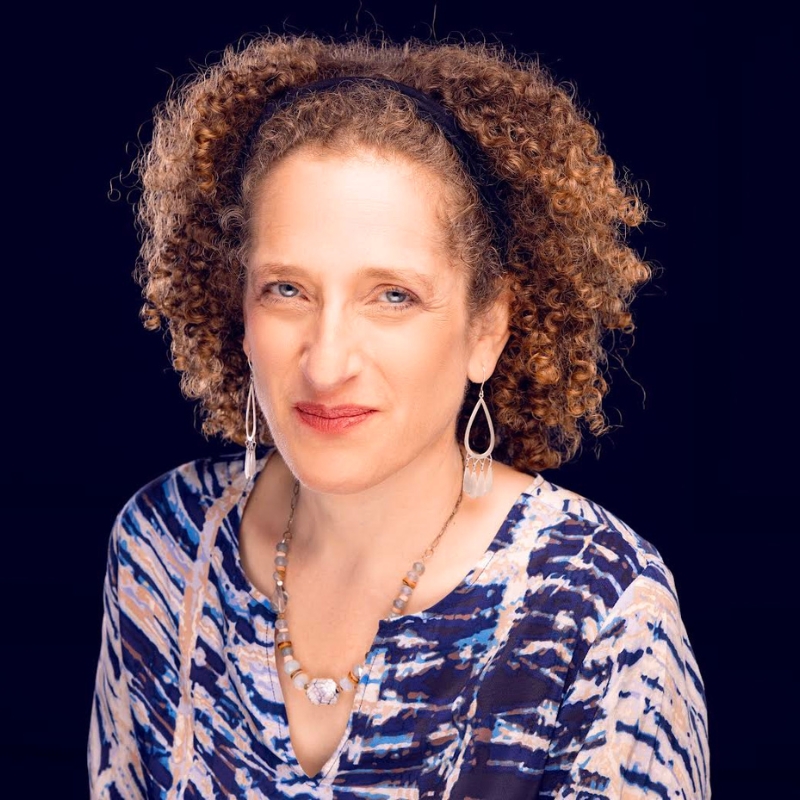Writing this d’var Torah in October as the United States braces for the tense weeks leading up to the presidential election, I could feel that anxiety and divisiveness between groups seem to be at a high point. Marginalized groups, especially immigrants, appear to be in the crosshairs of hate, as conspiracy theories swirl in the wake of two devastating hurricanes in Southern states on the East Coast, and election integrity is questioned and even undermined. Insane-sounding statements such as those blaming “the Jews” that once were seen in satirical, Weimar-era cabaret songs are now almost par for the course.
Reading this week’s parshah, Lech Lecha, I was drawn to a piece of the text toward the very beginning. God speaks to Abraham, today considered the patriarch of three religions — Judaism, Islam, and Christianity — saying:
I will bless those who bless you
And curse the one who curses you;
And all the families of the earth
Shall bless themselves by you. (Genesis 12:3)
This famous passage sets up a future, perhaps up to the present day, in which other nations are blessed by God and themselves if they bless the ancient Israelites and their descendants (now the Jews). Likewise, it tells us, God will curse other nations if they curse us.
Find more commentaries on Lech Lecha.
One interpretation of this passage from Da’at Zekenim (quoting Midrash Tanchuma) understands the blessing from God here as a blessing of the people by the Levite priests, who are in turn blessed by God. A beautiful capacity of Jewish tradition is the ability each person has to bless another, to offer the Priestly Blessing specifically, not to mention spontaneous words of the heart.
We could think of the many ways that the Jews have blessed the peoples of the world or the ways that we have been cursed by them. “When will God curse the antisemites in our world, given that they have clearly found it worthwhile to curse us?” As Jews, we often find ourselves made special in one way or another, especially hated and vilified, or seen as exceptionally powerful, but always the object of what feels like too much attention.
Perhaps the greatest blessing of our people to the world is the story of liberation that has inspired freedom narratives and struggles for liberation around the globe. Rabbi Irving ‘Yitz’ Greenberg frames the Exodus of the Israelites from Egyptian slavery as the first model of every liberation to follow of an oppressed people that would occur in human history. (The Jewish Way: Living the Holidays) Indeed, the narrative we Jews use to define ourselves is often framed by the story of leaving Egypt, as in the Friday night kiddush blessing over wine — zeicher litziat mitzrayim — commemorating the Exodus from Egypt. Daily morning services in our liturgy include the narrative of the Song of the Sea, when the Israelites escape Pharaoh’s army and arrive safely on dry land with singing and dancing. And, notably, the Five Books of Moses conclude with a final mention of God having freed the Israelites from Egypt with great signs and wonders. But liberation is not complete, by any means, in the modern world.
Sign up to receive (M)oral Torah in your inbox each week.
When Abraham receives the promise of blessing, he is not simply a passive recipient: He must himself become a blessing to others. This is one way to look at social justice in the world today — recognizing that we are not only here to receive blessings but to redistribute them, to share them with others. In a time of profound global instability, we must remember that true blessing is found in the act of blessing others. As Rabbi Eliyahu Botschko pointed out, moral responsibility for actions between people is inseparable from that toward God. (Hagim Uzemanim)
God promised Abraham that his descendants would be a blessing to the nations. In times like this, grounding ourselves first and finding a sense of inner calm is sometimes the first step in understanding where and how to take the most constructive action for working toward healing and repairing the world.
I leave you with this blessing based on the Priestly Blessing, which I learned from my teacher, Rabbi Sam Feinsmith:
May you be blessed. May you be safe.
May you be loved,
May you be luminous,
and may you find peace.
Ken y’hi ratzon. (Be this God’s will.)
Cantor Risa Wallach (she/her) is the cantor at Temple Beth-El, a Reform Congregation in Hillsborough, NJ. She carries a commitment to using the power of music to spiritually engage and build community. She is passionate about social justice and infuses inclusion and equality into her cantorate. Cantor Wallach was ordained at Hebrew College in Newton, MA, in 2015. Prior to her current role, she served as cantor in Jersey City, NJ, and in Walnut Creek, CA. Before her time in the cantorate, she worked as a medical social worker with the Visiting Nurses of San Francisco. She lives with her spouse, Rhette, and their cat, Shalom, in Somerville, NJ.

